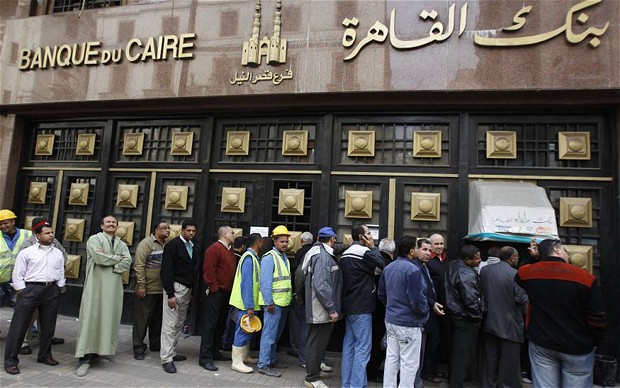
In the rare times when constructive discussions about economic policy orientation take place in post-revolution Egypt, emphasis is often placed on small and medium enterprises (SMEs) as a means to promote economic growth and help reduce high poverty rates. This same focus existed during the Mubarak era, as the regime tried to keep up with global trends, particularly given the positive light cast on SMEs in the development field over the last two decades."
However, in the wake of the Egyptian revolution, no policy should be adopted only for the sake of “looking good”. Supporting SMEs should not become an objective in itself, but should rather remain a means to achieve development goals. While promoting SMEs seems to be an accepted wisdom, particularly when it comes to developing countries, it is necessary to question whether this type of entrepreneurship is really capable of achieving development objectives in challenging times.
The number one argument used to encourage SMEs is that they are more labour intensive than large corporations and, as a result, contribute to job creation. Often perceived as more productive than large firms, a lack of financial assistance is thought to be the primary obstacle to SMEs contribution to the growth of the economy. In that sense, promoting SMEs and providing direct government support for this type of business is frequently seen as justifiable on economic grounds.
One would agree with the previous conclusion if support for SMEs was focused on specifics such as skills, productive capacities, markets, technologies, business services, information systems and so on. Instead, the focus is mostly directed to one form of support: providing access to credit. This is mainly because smaller firms run the risk of being less efficient and unable to bring innovations to the marketplace, as opposed to larger firms and the significant resources available to them to spend on research and development. As a result, large firms are more likely to boost productivity by coming up with innovative products and procedures, and implementing them at a lower cost because of their ability to benefit from the economies of scale.
As for the impact on employment and job creation, it is counter-intuitive to think that a group of firms often defined by the small number of employees is expected to address the issue of rampant unemployment. Moreover, larger employers usually offer better employment opportunities, whether in terms of wages, benefits, working conditions, training and skill enhancement, as well as job security. Indeed, SMEs advocates usually focus on job creation but so little do we know about the survival of those SMEs, especially in times of crises or slow-down.
To be clear, this is not an anti-SME campaign. Rather, it is a push to understand what can and cannot be done for the Egyptian economy through this sector. In Egypt, the definition of an SME itself remains vague. Is it defined by the size of its workforce, by its capital, its fixed assets or annual sales? Or are SMEs defined by the law? With the concept ill-defined, and the lines between SMEs and the so-called informal sector blurred, it becomes very difficult to assess their actual economic impact. It is even harder to see how policies directed towards SMEs can deliver on their promises. Furthermore, with a large number of SMEs operating in the informal sector, it is very hard to integrate them in the value chain and, consequently evaluate their performance in any meaningful way.
Accurate statistics on the sector are not available, given the difficulties in assessing the informal and unregistered status of many SMEs. However, according to the 2010 Egypt Human Development Report, SMEs account for 75% of employment and around 80% of GDP in Egypt. It would then be wrong – not to mention unrealistic – to say that the sector should be ignored. However, policy makers in post-revolutionary Egypt must reconsider the kinds of support offered to SMEs. A greater emphasis should be put on technical assistance to improve the efficiency of SMEs. Currently, technical business services are offered to a minuscule number of SMEs. Furthermore, women represent less than 10% of Egypt’s small entrepreneurs, with barriers, mostly of a cultural nature, posing serious impediments to their access to finance and to their particular needs for flexible labor laws.
With that being said, it is safe to underline that what really matters and should be focused on is the business environment for all firms, both big and small. Elements like well-defined and protected property rights, contracts enforcement and access to finance are conducive to a favourable business environment, allowing every single firm, no matter its size, to contribute to the economic prosperity of Egypt and its citizens.
Hoda Youssef is an economic analyst at the European Bank for Reconstruction and Development (EBRD).
Photo Credit: Reuters
Image: Egypt%20Cairo%20Bank.jpg
